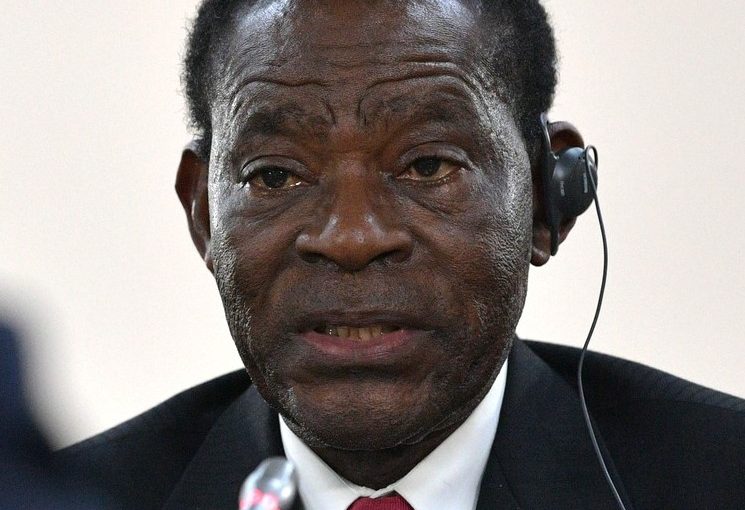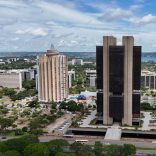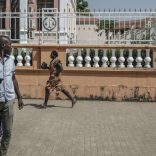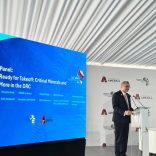Brazil economists trim end-2026 interest rate forecast after seven months
Equatorial Guinea: Refusal to give IMF domestic leaders’ asset lists

File photo: Wikimedia Commons/ The Kremlin, Moscow - Trip to Sochi. Russia-Africa Summit, CC BY 4.0, https://commons.wikimedia.org/w/index.php?curid=99075566
Equatorial Guinea has refused to publicise the assets of public sector leaders, “contrary to what was agreed”, instead launching “an alternative reform on the extractive sector”, the International Monetary Fund (IMF) told Lusa.
“The authorities were unable to reach an internal consensus on publishing the asset declarations of senior public officials,” an IMF spokeswoman told Lusa, when asked why the Fund’s board had approved the first and second reviews of the staff-monitored programme (SMP) together.
“In the context of the joint reviews, the SMP was extended by one year to give the authorities the opportunity to complete an alternative governance reform – the publication of a transparency report on the hydrocarbons sector,” she said, when asked if the Fund would accept a financing programme without disclosing the assets of Equatorial Guinea’s rulers.
When the first and second reviews of the SMP were released in August, the Fund stated, in unusually direct language, that “contrary to long-standing agreed commitments, the authorities have decided not to publish the declaration of assets of public officials”, so the solution found to maintain the engagement between the two entities was to extend the SMP for another year, until June 2026.
“The extension of the programme [until June 2026] will allow the authorities to conclude an alternative governance reform measure aimed at strengthening transparency in the extractive sector,” the Fund added.
In its replies to Lusa, the IMF added that “one of the objectives of the SMP is to establish the reform track record necessary for a potential IMF financing arrangement”, but warned that “reforms under a potential subsequent financing arrangement would be the subject of separate discussions, to be held closer to the end of the SMP”, which ends in June 2026.
For the IMF, “Equatorial Guinea’s main economic challenge is to adjust to the prolonged and continuing decline in hydrocarbon production and to boost inclusive non-hydrocarbon growth,” the spokeswoman said.
The postponement of the first review of the programme is the latest episode in a difficult relationship between the IMF and Equatorial Guinea, after several financial adjustment programmes fell by the wayside.
In December 2019, it signed an Extended Fund Facility (EFF) that said the country would receive $282.8 million (€240 million) in exchange for structural reforms and the fight against corruption, but of this amount, only an initial tranche of $40 million (€34 million) was delivered in December of that year, and the programme was suspended the following year during the pandemic.
In 2021, the director of the IMF’s African department, Abebe Aemro Selassie, told Lusa that “the weak capacity of the government to implement the [programme] was increased by the pandemic, making it very difficult to provide capacity building, audits, and other exercises needed to continue improving public finance management”.
Earlier, in February 2020, Equatorial Guinea’s return to the Extractive Industry Transparency Initiative was rejected for lack of information, which happened again the following year, and it has not tried to join again since then, according to the EITI website, which recalls that the country joined in 2008 and left in 2010.
Since 2014, Equatorial Guinea has been a member of the Community of Portuguese Speaking Countries, whose founding states are Angola, Brazil, Cabo Verde, Guinea-Bissau, Mozambique, Portugal, Sao Tome and Principe and Timor-Leste.












Leave a Reply
Be the First to Comment!
You must be logged in to post a comment.
You must be logged in to post a comment.